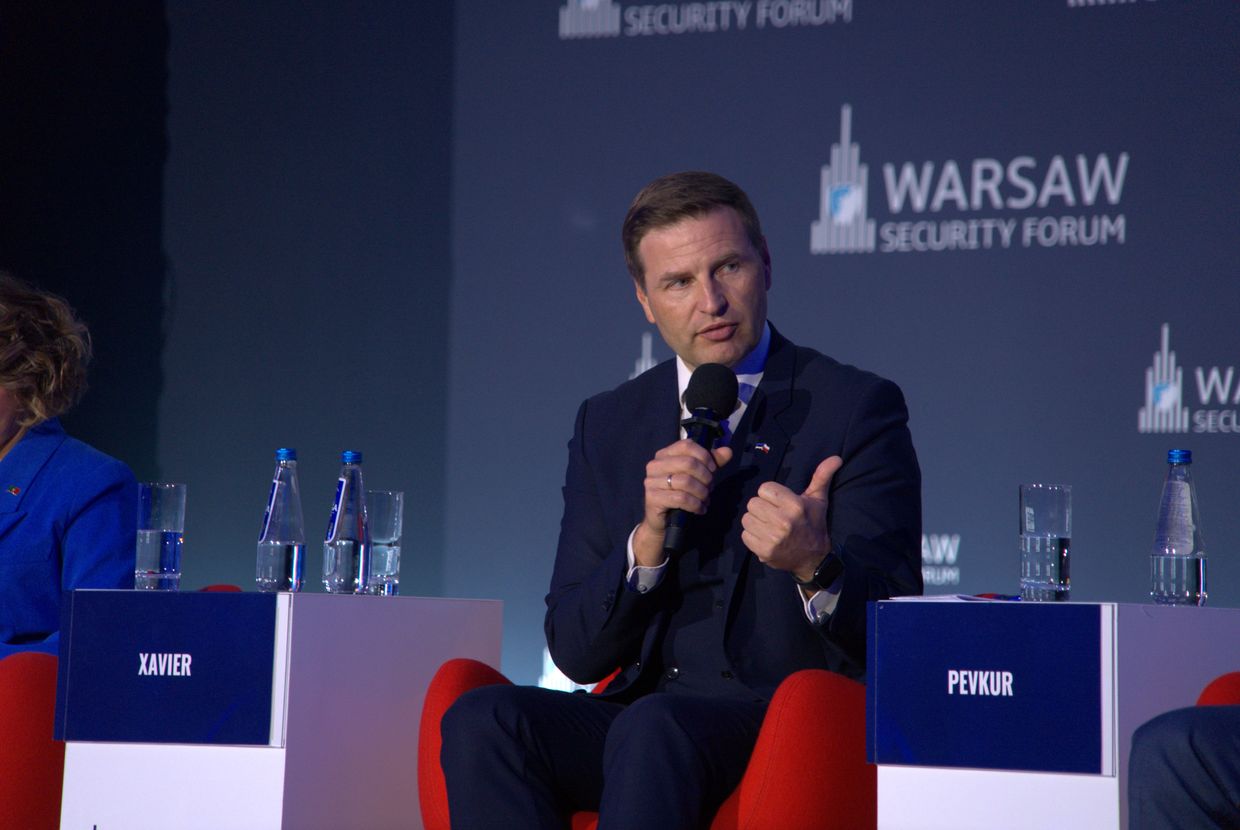Estonia considering buying defense equipment from Ukraine, official says.

Estonia is considering the possibility of purchasing defense supplies from Ukraine, Estonian Defense Minister Hanno Pevkur said on Oct.
13, according to local media. Ukraine's martial law prohibits the export of defense equipment, but Pevkur said it might be possible to circumvent these restrictions if both countries came to a mutually beneficial agreement. An agreement of this kind could help Ukraine increase defense production, Pevkur said, according to the Estonian media outlet ERR.
"If we receive consent from the Ukrainian government, then, of course, this can be done," Pevkur said. "We need to understand here that this can only be done in such a way that if we buy, then Ukraine gets more money. And they will be able to produce more for their army."
Kyiv has scaled up defense production over the past two years and aims to become a global leader in the defense sector. Ukraine now has the capacity to produce around £20 billion worth of weapons and equipment, according to government estimates, but the state budget can only fund around £6 billion. Pevkur said that if Tallinn and Kyiv reach a defense purchase agreement, Estonia will only buy equipment the country most urgently needs.
"Long-range missiles are, of course, interesting for us," the Estonian defense minister said. "There are many different options. Of course, we cannot talk in detail, but first of all, we will look at these systems that can affect the enemy at a long range."
Pevkur will meet with Defense Minister Rustem Umerov in Brussels next week, and also plans to visit Ukraine in the near future.
Estonia and Ukraine signed a 10-year bilateral security agreement on June 26. The deal stipulates that Estonia will supply Ukraine with defense aid worth more than 100 million euro (£107 million) this year and will allocate at least 0.25% of its gross domestic product (GDP) annually for military support in 2024-2027.
Kyiv and Tallinn will also will launch a regular "strategic dialogue" and deepen their military-industrial cooperation.